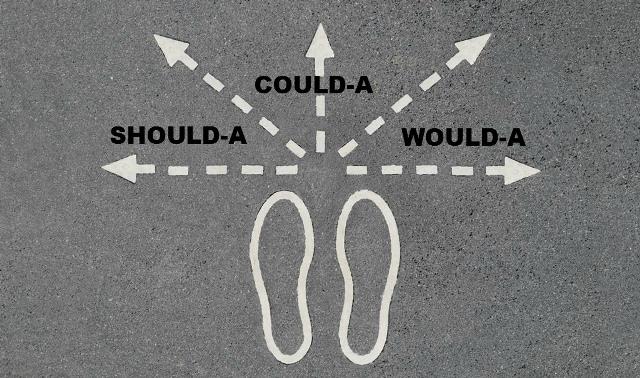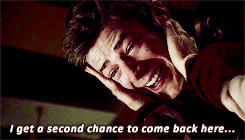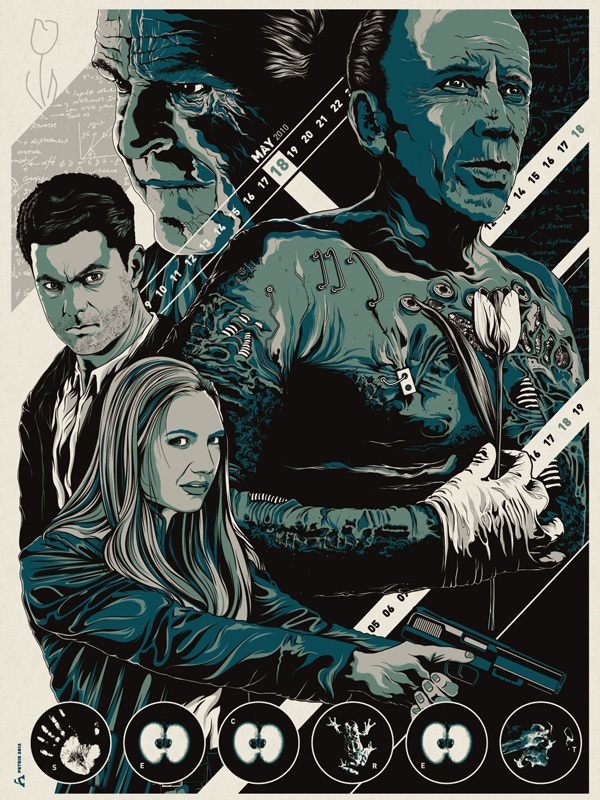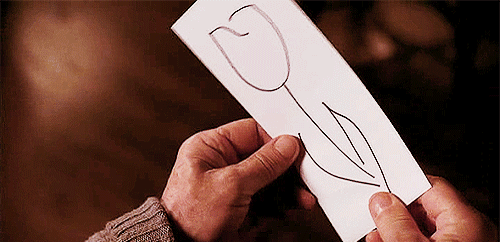Lost, Fringe, Doctor Who, Star Trek, The Flash, Harry Potter, Legends of Tomorrow, even Game of Thrones. Why do so many of the stories we love involve time travel?

The causal loop time travel method can propel some of the most cathartic storylines despite— or perhaps because of— its fatalism. These stories parallel the constraints of real life. In the original film version of 12 Monkeys, Bruce Willis’s character cannot prevent the outbreak of the virus, even by traveling back in time. The fact that one event is in “the future” and the other event is in “the past” is irrelevant to the events’ immutability.
But still, we wonder.
“People are always interested by the road not taken,” says Marc Guggenheim of Legends of Tomorrow. “Time travel provides a very clear, concrete narrative framework to explore those issues.”
In a time travel story, characters’ choices are imbued with an extra layer of significance because that “road not taken” can actually be fleshed out onscreen or on the page. When time travelers come face-to-face with their regrets, the wish fulfillment fantasy of altering past mistakes becomes a reality. Meanwhile, the experience of overcoming these regrets takes center stage as well, forcing characters to quite literally confront their past.
Regret is a complex emotion, one that drives character development in all kinds of time travel stories.
The Twilight Zone was particularly keen on this theme. In the Season One episode “Walking Distance,” forlorn businessman Martin Sloane inadvertently travels back in time to his childhood town. What begins as a traditional nostalgia trip morphs into something deeper, because for Sloane, looking back has suddenly become going back. With the aid of a bit of time travel, Sloan taps into one of the most basic human desires. He seeks to vanquish regret by physically going back and fixing things, changing a current reality by modifying the past.

An almost identical Season One episode of The Twilight Zone was adapted from Harlan Ellison’s short story, “One Life, Furnished in Early Poverty.” Like “Walking Distance,” “One Life” features a discontented, middle-aged man who is unwittingly transported back in time to his childhood home. In “Walking Distance,” Sloan attempts to reconcile the gap between the happy boy he once was and the resentful man he is now. But in “One Life,” Gus Rosenthal knows exactly what made him so embittered, and he resolves to protect his younger self from bullies and to serve as the father figure his younger self never had.
Regret is a complex emotion, one that drives character development in all kinds of time travel stories. But when characters believe they can alter outcomes by changing the past, they often end up causing unintended— and frequently worse— consequences.
Taken from this angle, Damon Lindelof views many time travel stories as cautionary tales. “Look, regrets are good!” he explains. “Mistakes are good— you’re supposed to make them. You learn from them. You can’t go back and rectify them; all you can do is learn not make them again.”
Lindelof believes that all great science fiction stories are cut from the same thematic cloth as Mary Shelley’s Frankenstein. That message, he says, is: Just because we can, doesn’t mean we should.
Just because we can, doesn’t mean we should.
“Good time travel storytelling usually starts with someone having the best of intentions, in terms of traveling into the past and fixing something that has gone wrong,” says Lindelof. “But then, very often, you come to the realization at the end that you should not have tampered with it.”
On the CW show The Flash, speedster Barry Allen (Grant Gustin) has the power to run so fast that he travels through time, and he capitalizes on this ability in the Season One finale, “Fast Enough,” to jump back to the night his mother was murdered. Before Barry embarks on the journey, his father (John Wesley Shipp, who played Barry Allen in the CBS iteration of The Flash in 1990) tries to talk him out of it.
“Things happen the way they do,” Henry Allen says. “We may not know why at the time, but there must always be a reason.” Henry praises the person Barry has become despite— or because of— this tragedy in his past, and warns him of unforeseen consequences.

Barry does, of course, go back in time, and it is only the appearance of another time traveling Flash that prevents him from interfering with the events of his past. Upon returning to Barry’s present time, the season’s antagonist is thunderstruck by Barry’s non-action. “You could have had everything you ever wanted!” he says. Barry, realizing the man he has become and the lives he has impacted along the way, says simply: “I already do.”
Spoiler and mini-rant alert:
Season 3 of “The Flash” is threatening to ruin everything with regards to Barry’s character development because of the implementation of a little story arc called “flashpoint.” The Season 2 finale saw Barry committing the very act he refrains from doing at the end of Season 1: saving his mother. Naturally, this massive change reverberates across his timeline, and the result, as the Season 3 slogan goes, is a common refrain of time travel narratives: “Time strikes back.” This simple (and simplistic) phrase is great for Hollywood billboards but rings totally false in terms of, you know, any sort of logical coherence. Time is not a sentient entity, nor does it deploy agents from some sort of Department of Temporal Investigations (a Star Trek: Deep Space Nine joke— but we’ll get to that later) to set things “right.” Either time travel and/or travel between universes is physically and logically possible in a given fictional reality, or it isn’t. The laws of the cosmos don’t suddenly re-awaken whenever a time traveler does something naughty.)
End of spoilers and mini-rant.
One particular episode of Fringe, Fox’s science fiction drama from the braintrust of J. J. Abrams, Alex Kurtzman and Roberto Orci, also centered on a defining tragedy in a character’s past, implementing time travel to elevate the subtle drama of Walter Bishop’s quest to atone for his biggest regret.

In the episode “White Tulip,” Alistair Peck (guest star Peter Weller) is a bereaved scientist who is intent on traveling back in time to save his fiancée from a car accident. Peck and his fiancée, Arlette, had argued before splitting up for the day; as a result, Peck wasn’t with her in the car when she was killed. Regret mingles with grief, and Peck decides that he can save her life if he alters the outcome of their argument. “If I’d have simply done what she asked me,” he explains to Walter, “I know it wouldn’t have happened.”
Peck acts on his regret by looking backwards, by literally regressing into his past, and his tale ends in tragedy. Walter, on the other hand, learns how to use his regret to move forward, to accept what is already done while striking out on the path to repentance.

If this sounds like a religious journey, it should. Indeed, one of Fringe’s storytelling strengths— like that of its older brother, Lost, another J. J. Abrams creation— was its exploration of the man of science / man of faith divide. Time travel bridges this gap by using a science fiction trope to probe the minefield of spiritual and moral responsibility. In a secular sense, time travel serves as a prayer for forgiveness: While the religious person humbly petitions God to wipe away her sins, the time traveler hubristically plays God, erasing the sins herself.
“You can use hubris in the religious construct in which it’s actually intended, which is ‘defying God,’” Lindelof says. “But then, on a sort of a meta level, God created you in order to defy him, and knows that you’re going to attempt to do so, and is going to try to teach you a lesson in the process: that destiny is fundamentally unalterable.”
In a secular sense, time travel serves as a prayer for forgiveness.
This is the point that Walter tries to make in his climactic conversation with Alistair Peck, as Walter spins his tale of regret. He tells Peck about how he, too, was compelled by his grief over a lost loved one to bend the laws of time and space in order to assuage his anguish. After failing to prevent the death of his sick son, Peter, Walter kidnapped an alternate universe version of his son and raised him as his own. Since then, he says, “not a day has passed without me feeling the burden of that act.”
Walter is searching for a sign of forgiveness: a white tulip. “If God can forgive me for my acts,” he says, “then maybe… it’s in the realm of possibility that my son, possibly, may be able to forgive me too.”
Peck’s time travel story also highlights Walter’s ordinary movement through time as he grapples with painful consequences that Peck, by time traveling, attempts to re-write. The episode is neatly framed by the image of Walter composing a letter to Peter as an explanation of the latter’s murky past and of Walter’s wrongdoing; in the opening scene, Walter pockets the letter as he is called away to investigate the deaths caused by Peck’s time jumps.
But the final scene takes place in a universe in which Alistair Peck successfully traveled to the past without causing any destruction in Walter’s present. Therefore, in this re-written timeline, Walter never receives a phone call summoning him to a crime scene, and he never meets Peck. Instead, he finishes the letter… and tosses it into the crackling fire. Immediately afterwards, he receives a letter in the mail to replace the one he just burned. In the envelope is a single, white tulip.

The audience knows that Peck sent this tulip before he jumped to the past and disappeared from this timeline. But this timeline’s Walter has never told another soul about his search for a sign of forgiveness. We can imagine that in his mind, the tulip was sent by God. This final image provides “The White Tulip” with the visceral punch that makes the episode so memorable— in fact, the episode’s popularity among fans inspired the writers to end off the entire series with a parallel scene involving a white tulip sent from a time traveling Walter.
Peck plays God by tampering with time, then inhabits a God-like role by delivering the white tulip to Walter. If we invoke St. Augustine’s description of God as a being “outside of time,” then the time traveler essentially occupies the same realm as a divinity. In other words: Time travelers see your creation myth, Mary Shelley, and raise you all of time and space. Time travel is in many ways the ultimate superpower— and because of that, it can very easily be abused.
On BBC’s time-and-space traveling epic, Doctor Who, the Doctor himself exposes this connection. When the Doctor’s traveling companion, Rose (Billie Piper) insists on using his TARDIS to go back and save her father in the 2006 episode “Father’s Day,” he scoffs: “I should have known. It’s not about showing you the universe, it never is. It’s about the universe doing something for you.”
Fringe, however, traces Walter’s journey away from the hubris that compelled him to tear the very fabric of the universe for personal gain. Humbled by his regrets, Walter makes things right in the present— in a regular, human way— rather than by time traveling to the past.
Check back in next week for Star Trek: Deep Space Nine, Star Trek 2009, and an interview with Terry Matalas of 12 Monkeys. Or, you know, just hop in your time machine and read it now. If you choose that option, hit me up, I have some questions…


